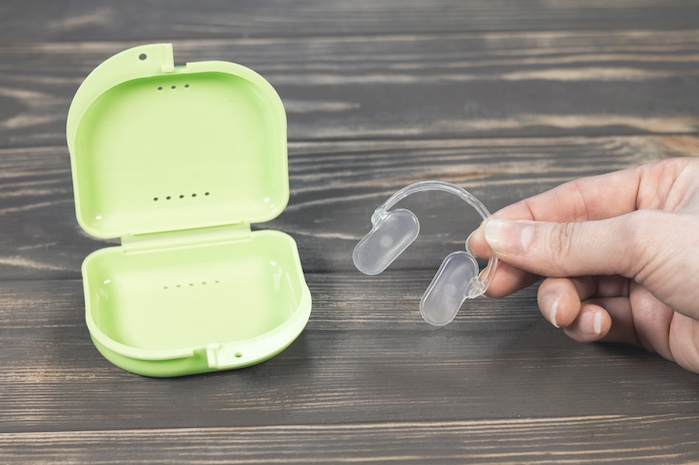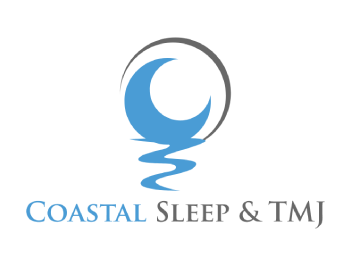Managing TMJ Disorders
TMJ problems are rarely cured. However, we can reduce the long-term difficulties to your health and quality of life and direct you toward the help you need. Most people have many variables of problems that contribute to TMJ pain. If cases of TMJ are not addressed, problems worsen. Just because pain or symptoms are gone doesn’t mean you don’t have continuing damage.
Patients should seek a more detailed diagnosis or treatment for TMJ if they have the following:
- Difficulty opening their mouth wide
- Jaw locking open for any amount of time
- Recurring problems with therapy and results that don’t last
- Concern about continuing damage and future problems
TMJ is not a diagnosis but a description of the location of the pain where it is most noticeable.

Common Symptoms of TMJ Disorders
There are many different ways TMJ disorders manifest in your mouth. Some of them are hard to recognize, and others are symptoms of dental or oral health problems. Call our office if you experience one or more of the following symptoms. We’ll evaluate you for TMJ disorders so that we can get you the correct treatment.
The most common symptom is pain around the jaw joint, which can be on one or both sides. Patients have said that the pain worsens when chewing or opening their mouths wide. The pain can radiate to surrounding areas, usually including the head. Waking up with headaches is common for patients with TMJ disorders. These headaches can worsen into migraines with time.
TMJ disorders impact both the muscles and the bones. The muscles that help move the jaw become stiff or fatigued, making it difficult to move your jaw. Painful muscle spasms can also occur randomly, pulsing throughout the area. As the jaw joint wears down, it’s common for it to pop or click with use. Your jaw may lock or grind, struggle to fully open or close, or briefly get stuck in a certain position.
TMJ disorders and teeth grinding often go hand in hand. When you’re stressed, you’re more likely to do it. It’s all subconscious and usually happens when you’re asleep. You may also catch yourself doing it when focused on something during the day. Teeth grinding heightens the need for treatment because it puts more pressure on your jaw joint and teeth, accelerating the problem.
Causes of TMJ Disorders
Various things can cause TMJ disorders. Yours may be caused by a single factor or multiple. Everyone is different, and we try to determine and correct the root cause so you no longer have to worry.
Stress and Lifestyle Causes
Certain things you do in your everyday life may contribute to developing a TMJ disorder. Grinding and clenching your teeth is one of the main causes of TMJ disorders. When stressed, you’re more likely to do these things subconsciously or while asleep. This puts constant pressure on the area, breaking down the joint over time.
Habits like excessive gum chewing overwork your jaw muscles, fatigue them, and strain the jaw joint. Even your posture impacts your jaw joint. When you slouch and hunch over, your neck and jaw muscles are more stressed. If your diet doesn’t have enough essential vitamins and minerals, it impacts the joints and muscles.
Medical Causes
There are many medical causes for TMJ disorders, too. Trauma or injury directly impacting the jaw joint can damage the joint structures and increase your chances of TMJ disorders. An uneven bite does this, too. If your teeth are crooked and your bite doesn’t come together properly, the jaw doesn’t track smoothly. The joint starts to break down, and the muscles and surrounding ligaments strain.
Multiple medical conditions contribute. Osteoarthritis occurs due to the wear and tear of the cartilage inside your jaw joint. Rheumatoid arthritis is a painful autoimmune disorder that causes pain and inflammation of the joints. Both conditions can lead to chronic pain, joint stiffness, and restricted jaw movement.
Other harmful medical conditions that cause TMJ problems include fibromyalgia, chronic fatigue syndrome, and connective tissue disorders. Many of these make you more susceptible to pain and cause muscle tension.

TMJ Treatment at Coastal Virginia Sleep Solutions
We will ensure that we give you ALL the information you will need on your first visit with us.
Our dental team will ask you to provide us with information that will help us make your first visit as efficient and valuable as possible. We will schedule you for a 15-30 minute appointment with a TMJ-focused evaluation. Our team will use the information you provided and our clinical evaluation to explain your situation.
Dr. Harper will check for pain in the TMJ or muscle and determine whether there is a danger of continued damage. He will then find the cause of your TMJ problems, give you a diagnosis, and provide recommendations on how he can help.
TMJ Disorder FAQs
TMJ can be a very debilitating, painful condition. Learn more by reading the answers to these commonly asked questions.
Can a TMJ disorder go away on its own?
In some cases, a TMJ disorder may improve or resolve on its own, especially if it is caused by temporary factors such as stress or minor injury. However, chronic or severe TMJ disorders often require treatment to manage symptoms and prevent further issues. If symptoms persist, it’s important to consult a healthcare professional for appropriate evaluation and management.
When should I treat TMJ?
You should seek treatment for TMJ if you experience persistent pain, discomfort, or dysfunction in your jaw, such as difficulty opening or closing your mouth, frequent headaches, or jaw clicking and locking. If these symptoms interfere with your daily activities or quality of life, professional evaluation and treatment can help manage and alleviate them. Early intervention can prevent the condition from worsening and improve overall jaw function.
Do I need surgery to get rid of TMJ?
Surgery is typically a last resort for treating TMJ disorders. We usually only recommend it if conservative treatments, such as medications, physical therapy, and dental interventions, are ineffective. Most TMJ issues can be managed with non-surgical approaches, including lifestyle changes, stress management, and oral appliances. If surgery is deemed necessary, it should be discussed thoroughly with a healthcare provider to weigh the benefits and risks based on your specific condition.
What should you not do with TMJ?
With TMJ, you should avoid activities that strain the jaw, such as excessive chewing, gum chewing, or eating hard and sticky foods. Additionally, refrain from clenching or grinding your teeth, which can exacerbate symptoms. Managing stress and avoiding habits like resting your chin on your hand or sleeping on your stomach can also help reduce TMJ-related discomfort.
How do you calm a TMJ flare-up?
To calm a TMJ flare-up, apply a warm or cold compress to the affected area to reduce pain and inflammation. Practice gentle jaw exercises and avoid strenuous jaw movements or hard foods that may worsen the condition. Over-the-counter pain relievers or anti-inflammatory medications can also help manage discomfort. Stress-reducing techniques, such as relaxation exercises or mindfulness, may alleviate tension that contributes to flare-ups.
What time of day is TMJ worse?
TMJ symptoms can often worsen in the morning, particularly if you grind your teeth or clench your jaw during sleep. Stress and jaw tension may also accumulate throughout the day, exacerbating symptoms by evening. However, the severity can vary from person to person, and monitoring when symptoms are most intense can help manage and treat the condition effectively.
How should I sleep with TMJ?
To sleep comfortably with TMJ, try to sleep on your back with a supportive pillow to maintain proper head and neck alignment. Avoid sleeping on your stomach or side, as these positions can put additional pressure on your jaw. Additionally, ensure your pillow provides adequate support to avoid neck strain that could aggravate TMJ symptoms.
Contact our office for an evaluation today. Call Coastal Sleep & TMJ at (757) 600-0861 or request an appointment on our website.
